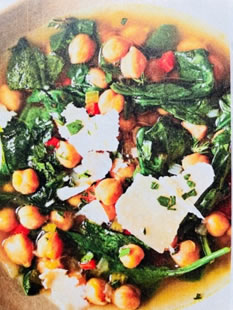The Power of Joy
by Jeffery Kluger
 Many studies have been done to try and pinpoint the loci of joy in the lobes of the brain, reducing something experienced transcendently to something processed mechanistically. A mechanical interplay of neurons, synapses and neurotransmitters is the biological part. Joy is studied in genetics too: Do happy parents produce happy children? Do we come straight from the womb loaded with operating systems that predispose us to happiness or optimism or melancholy or gloom? And if so, how does the environment into which we are born affect that? Happy programming may not overcome tragic upbringings. Gloomy programming may eventually be overcome by loving caregiving. Or not.
Many studies have been done to try and pinpoint the loci of joy in the lobes of the brain, reducing something experienced transcendently to something processed mechanistically. A mechanical interplay of neurons, synapses and neurotransmitters is the biological part. Joy is studied in genetics too: Do happy parents produce happy children? Do we come straight from the womb loaded with operating systems that predispose us to happiness or optimism or melancholy or gloom? And if so, how does the environment into which we are born affect that? Happy programming may not overcome tragic upbringings. Gloomy programming may eventually be overcome by loving caregiving. Or not.
Families, cultures, or whole nations may share their own kind of collective joy or despair. In the recent “World Happiness Report”, the United States-the most powerful and prosperous country in the history of the world was only 18th on the list of happiest nations. We have rarely made it higher on that list.
Plenty of people think family is the key but there are plenty of miserable families too. Some think it is faith or the fellowship of religion or spiritual enlightenment.
Ultimately, the pursuit of joy comes down to a singular affair. We experience it personally and subjectively. We find it in meditation, or being in nature, jogging, cooking, dancing or art. When we fail to find true joy, we seek its chemical or behavioral simulacrum-in alcohol or drugs or gambling or shopping-only to find that that leads to sorrow that is a very real thing.
Your happiest moments are in your control. When you feel happy, relaxed, appreciated-sit on the feeling for a few breaths. Really feel it in your body. And focus on what’s enjoyable about it. Savor your happy moments as you would a fantastic meal. “Each step elevates the way your brain converts passing experiences into lasting changes in your mind and mood”, says Rick Hanson, author of Hardwiring Happiness.”
It’s been proven that our brains have the ability to create new neuropathways and imprint new beliefs, crushing the myth that old dogs can’t learn new tricks, according to author of Living Well Despite Adversity. The first step toward bolstering your mindset is to get proactive about it. Finding joy and levity, even in the most challenging times is a choice and a practice. Choose to look for reasons to be delighted and more importantly, create moments of delight for other people.
In essence, you need to reject the idea that good or bad things are passively happening to you. “Each of us are the author of our own book,” it’s up to us to figure out how to rise through the challenges” While you’re certainly not in control of the world or even what occurs to you in it, you can be the master of your responses to it.”
Pose of the Month
Low Lunge (Anjaneyasana)
 To get there, start in downward facing dog, step your left foot forward between your hands with your ankle directly below your knee. Straighten your right leg and maintain a soft bend in the knee. Lift your arms along side your ears or clasp together with pointers pointed toward the sky. Pushing your hips slightly forward and take 5 to 10 breaths for a great hip stretch. If you prefer, start from hands and knees instead. Repeat on other side.
To get there, start in downward facing dog, step your left foot forward between your hands with your ankle directly below your knee. Straighten your right leg and maintain a soft bend in the knee. Lift your arms along side your ears or clasp together with pointers pointed toward the sky. Pushing your hips slightly forward and take 5 to 10 breaths for a great hip stretch. If you prefer, start from hands and knees instead. Repeat on other side.
Chickpea Soup with Spinach & Parmesan
by Donna Lennard
½ cup dried chickpeas soaked and dried overnight in cold water and drained. Or can used canned chickpeas.
2 garlic cloves, peeled and smashed
 1 bay leaf
1 bay leaf
1 (10oz) white onion peeled and halved, divided
1 (3 oz carrot) peeled and halved crosswise, divided
½ tsp sea salt
2 Tbsp extra virgin olive oil
1 celery stock, finely chopped
4 cups chicken broth
1 tsp fresh thyme leaves
½ tsp chopped sage leaves
2 cups fresh spinach
1 Tbsp lemon juice
¼ tsp black pepper
2 Tbsp chopped fresh flat leaf parsley
½ oz Parmigiano-Reggiano cheese, shaved
Place chickpeas, garlic, bay leaf, ½ of the onion ad ½ of the carrot in a large saucepan. Add salt and enough water to cover peas and vegetables, bring to a boil over high heat. Reduce heat to medium low; let simmer until chickpeas are tender, about 1 hour, adding more water as needed to keep chickpeas submerged. Drain, reserving 1 cup cooked liquid, and discard vegetables.
While chickpeas cook, finely chop remaining onions and carrot halves. Heat 1 tablespoon oil in a medium saucepan over medium until shimmering. Add onion, carrot and celery; cook stirring often about 4 to 5 minutes.
Add chickpeas, reserved cooking liquid, broth, thyme, sage, and remaining 1 tablespoon oil; bring to a boil over medium high. Reduce heat to medium and simmer, stirring occasionally, about 15 minutes. Remove from heat, stir in spinach until wilted, add lemon juice and pepper sprinkle with the cheese. Serves 4
Remember the Simple Things
 The book Health Through Drugless Therapy, based on renowned psychic healer, Edgar Cayce’s years of success helping thousands with a wide variety of ailments mentions simple tips that can help us today.
The book Health Through Drugless Therapy, based on renowned psychic healer, Edgar Cayce’s years of success helping thousands with a wide variety of ailments mentions simple tips that can help us today.
Daily, for 43 years of his adult life, Edgar Cayce gave individuals helpful tools enabling them to improve their lives physically, mentally and spiritually. Although it is true that he did not live through the Coronavirus, he did live through the Spanish Flu of 1918, both World Wars, and the Great Depression. Each of these were global events that caused individuals to become afraid and seek help.
Headlines of the Coronavirus have prompted individuals around the world to become afraid. Perhaps the main reason is that most of the news is about the problem, leaving us to feel helpless about whether there is anything we can really do as individuals to help address the situation. The Edgar Cayce material would say, “YES, there is a great deal we can do.”
In terms of Health, the Cayce readings suggest that plenty of sleep, plenty of water, relaxation, and a healthy diet with plenty of fruits and vegetables can all bolster the alkalinity of the body and an individual’s immune system. He stated, “if an alkalinity is maintained in the system — especially with lettuce, carrots and celery, these in the blood supply will maintain such a condition as to immunize a person.” He also discussed thinking of breathing as a complete oxygen exchange. Everything we take into our body goes through the bloodstream. Cayce’s principles of CARE are circulation, assimilation, relaxation and elimination. Think about these four subjects and how well your body performs in these areas. These are things that we have control over. The amount of movement in our bodies is related to how good our circulation is. The foods we eat and what we drink is something we can control and monitor. How our bodies react tells us if we are using food as medicine or poison.
When thinking about health, Edgar Cayce said this, “each day our bodies must manufacture millions of cells. Our health and youthfulness depend on our ability to do so. When we can no longer do this, we age and die.”

It is upon health, not ill health that your sights should be fixed.
Dr. Roger J. Williams

